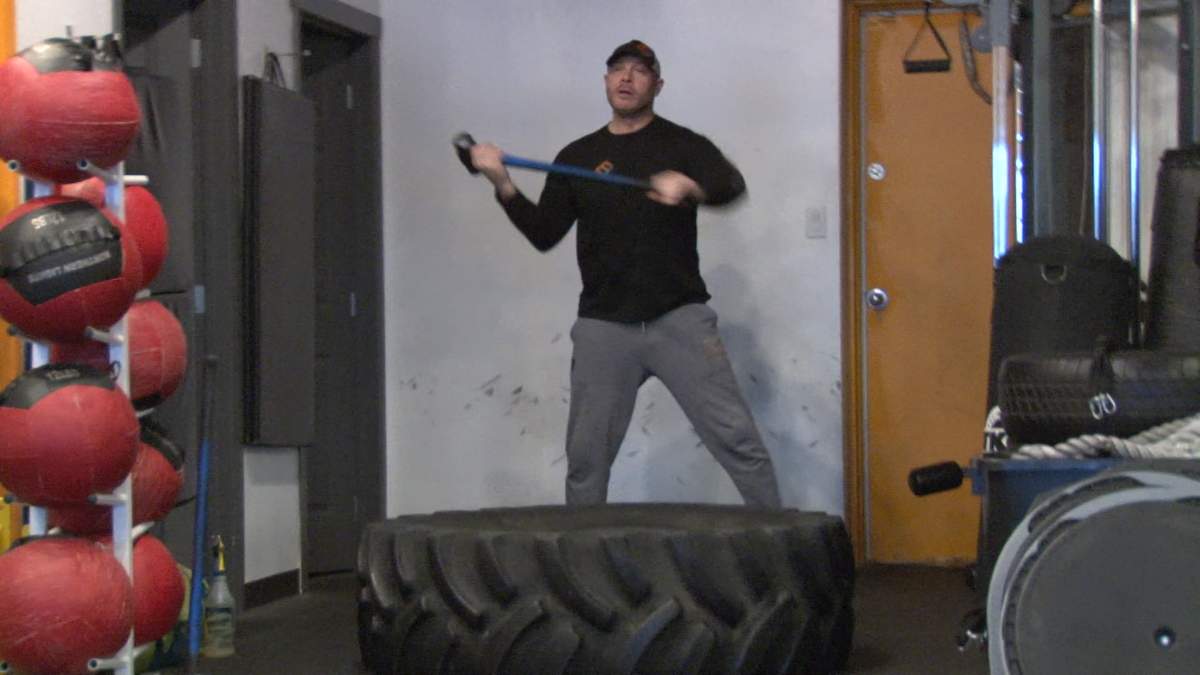This is part of Canadian Health and Wellness, a series in which Corus radio stations nationwide dig into health issues facing Canadians with the help of some of today’s most respected diet and exercise practitioners. Read the rest of the series here.

Getting in better shape is one of those perennial New Year’s resolutions that many make but few seem to follow through on — but technology may be changing that.
“I see a lot of people right now are moving online,” says Ryan Grant, owner and trainer at Mojo Fitness in Calgary.
“There’s still the accountability factor, where people like to pay their money and they come (to a gym) and they still do their workout. But a lot of people are doing it online now so that they can use (streaming workouts) in their house.
“And then when you talk about Fitbit and the Apple Watches and stuff like that, they’re great tools for measuring calorie expenditure, steps, whatever it might be.”
LISTEN: Canadian Health and Wellness — tech and motivation
Wearable technology, streaming workouts and fitness-related smartphone apps are a booming part of a $30-billion fitness industry, according to Forbes.
One advantage fitness tech can have is the changes in behaviour that notifications can produce.
“A Fitbit or a pedometer really can be a very good thing because it does tell you when you’ve reached those magic 10,000 steps a day,” Calgary physician Dr. Phillip van der Merwe tells Global News.
“People love getting the buzz on their arm when that goal is reached.”
Smartphone apps are also a convenient way for people to track their dietary intake, according to van der Merwe.
“Sometimes, they can also be helpful with educating people,” he says.

Get weekly health news
“It can lead some people to think, ‘You know, maybe the 1,000 calories for the burger isn’t quite worth it.’”
Grant recommends his clients get a minimum of three workouts a week — five workouts per week is ideal.
According to van der Merwe, it’s recommended that adults get 150 minutes of moderate exercise a week.
To start, the Calgary physician suggests going for a walk.

“I’m not talking about strolling leisurely and doing window shopping. We’re talking about a moderate intensity of walking, where you do break a bit of a sweat and you get a bit short of breath but you can still have a conversation with someone,” van der Merwe said.
In a study published in the Journal of the American Heart Association, scientists found that sitting and watching television or streaming services was even worse than having a desk job.
“Yes, sitting is the new smoking,” van der Merwe said. “It’s not good.”
Physical fitness can be measured in a number of ways, like body mass index or body fat percentage. Van der Merwe suggested one way to measure physical fitness that can be easily done at home.
“Take a measurement around your belly, right where the belly button is,” van der Merwe said. “That’s probably more of a sensitive indicator as to how healthy you are or not. There’s a correlation between that measurement and diabetes, heart disease and general life expectancy.”
Fortunately, for those looking to get off the couch and get more active, the definition of exercise can be broad.
“It’s anything that we can do to get our heart rate up,” Grant said. “It’s just a matter of doing anything.
“It could be something as simple as going for a walk. It could be shovelling the driveway. It could be intense workouts — HIIT workout, yoga. It’s a variety of things.”
HIIT, or high-intensity interval training, is a series of short bursts of intense activity mixed with short breaks. According to the Mayo Clinic, it helps improve aerobic health and muscle performance, and is time-efficient.
The Mayo Clinic advises talking with your doctor before taking up any new exercise routine.
But getting those 150 minutes of activity doesn’t necessarily have to be in a gym or with a stereotypical exercise, according to fitness author James Fell.
“A lot of people have found that not engaging in exercise but engaging in work has been a great way to get fit,” Fell tells Global News. “So, they take great pride in their lawns or their gardens, where they’re out there digging around all day long, or keeping a meticulously clean house.
“Deciding to walk to work or taking the stairs — those types of things where they just create those types of habits where they’re constantly moving little bits rather than going all out for 40 minutes in a class that just feels like torture.”

Whatever the exercise of choice, Fell says there’s one secret to sticking with it.
“Going beyond just focusing on habit formation… find something that you’re really passionate about,” Fell says. “Try different things, and you don’t necessarily have to change everything at once.”
— With files from Brenda Neufeld and Haley Jarmain
















Comments
Want to discuss? Please read our Commenting Policy first.